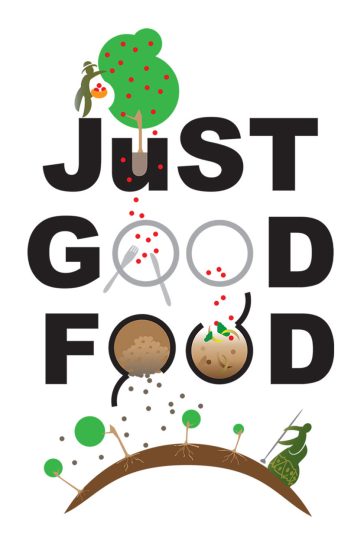Composting, harvesting among university efforts
This year’s Honors Colloquium entitled “Just Good Food” focuses on how to be more sustainable with your food choices. PHOTO CREDIT: uri.edu
This year, the University of Rhode Island’s Honors Colloquium is focusing on ways that students and community members can be more food sustainable.
With the goal of educating the public on problems in the food industry, as well as mapping out ways to tackle these problems, the lecture series is entitled “Just Good Food: Creating Equitable, Sustainable, and Resilient Food Systems.”
While the colloquium’s Tuesday night lectures discuss food systems and production globally, students can utilize this information at a smaller, dorm-sized scale, according to Pierre St-Germain, associate director for Dining Services at URI.
St-Germain discussed how the school’s staff and students can implement more efforts toward food sustainability on the Kingston campus.
“I think the critical part for food sustainability is trying to reimagine or manipulate the way that food is brought in and presented to students,” St-Germain said.
He also mentioned that “Purchasing, distribution and redistribution” are all important aspects for sustainability.
St-Germain expressed that Dining Services has the ability to sometimes source internally for products, stating that URI “has a fairly unique environment.”
“We have good relationships with the local farms but we just don’t tend to utilize them as much as we should,” St-Germain said.
St-Germain said that he hopes to work with farms more in new sustainability initiatives, such as introducing student-run composting and sourcing food more sustainably.
Balancing cost with sustainability efforts became more of a challenge for the University when COVID-19 hit the United States, according to St-Germain. He explained how COVID changed the access to certain foods and production farms, making it difficult to make sure food wasn’t being wasted while balancing production issues.
“[URI’s] East Farm and Agronomy Farm tend to leave a lot of finished product with sometimes no home, so we try to utilize what is there,” St-Germain said.
According to St-Germain, Dining Services wants to utilize any leftover food, whether that means introducing it differently in dining halls, donating it to food recovery programs, or composting it at local facilities.
Composting is a main component of the food sustainability initiatives at Dining Services, and there have been expansions at the venues the school uses to compost. URI composts, not only the food from campus dining halls, but any of the materials donated from the food science labs. They have also introduced smaller changes in the past to encourage food sustainability among students.
In order to encourage students to waste less food in the dining halls, URI exchanged the previously bigger food trays for smaller plates. The decision to remove the trays was a sustainability action done by many colleges and universities, according to St-Germain.
The University has also been involved with on-campus food recovery work, like the Campus Outreach program, as well as providing needed assistance for students that are food insecure.
Aside from dealing with food production and distribution, St-Germain said that a majority of the Dining Services’ sustainability efforts can also be done by students.
St-Germain explained the concept of Meaningful Mondays, where URI students are able to donate meal swipes each Monday and help their food-insecure peers. In addition, anyone on campus can donate non-perishables to Campus Outreach, and further help with food insecurity.
Karen de Bruin, Director of the Honors Program, discussed more hands-on ways to be sustainable that she learned through the Just Good Food colloquium.
“The [colloquium] presentations are going to speak to themes that perhaps students haven’t considered before and that [they] should be considering,” De Bruin said.
While the Dining Services and residence halls have done a lot of composting on campus, none of the efforts are student-run. De Bruin emphasized the importance of having a student-facing composting program, where members of the URI community can see the positive impacts of their sustainability firsthand.
In the near future, St-Germain hopes to make student-run composting an official compass initiative.
Having students throw out their food in compost bins, as opposed to trash cans, is a plan that De Bruin believes would be beneficial for student involvement with food sustainability.
St-Germain’s only concern with this idea of post-consumer composting in dining halls is the possibility of contamination. However, he said he would consider having students involved with environmental programs monitor what food is put in the trash and composting bins if there was interest among students.
Students can also become more sustainable through what and where they choose to eat, according to De Bruin.
“Eating more locally produced food, supporting local initiatives,” De Bruin listed. “If we eat better food, we can only feel better, right?”
As St-Germain and De Bruin explained, food sustainability is a process. But small efforts, such as portioning meals in order to eliminate waste and supporting food recovery programs on campus, contribute to a healthier earth.
“The more you know about what you can affect through your actions, the better served you’ll be,” St-Germain said.

